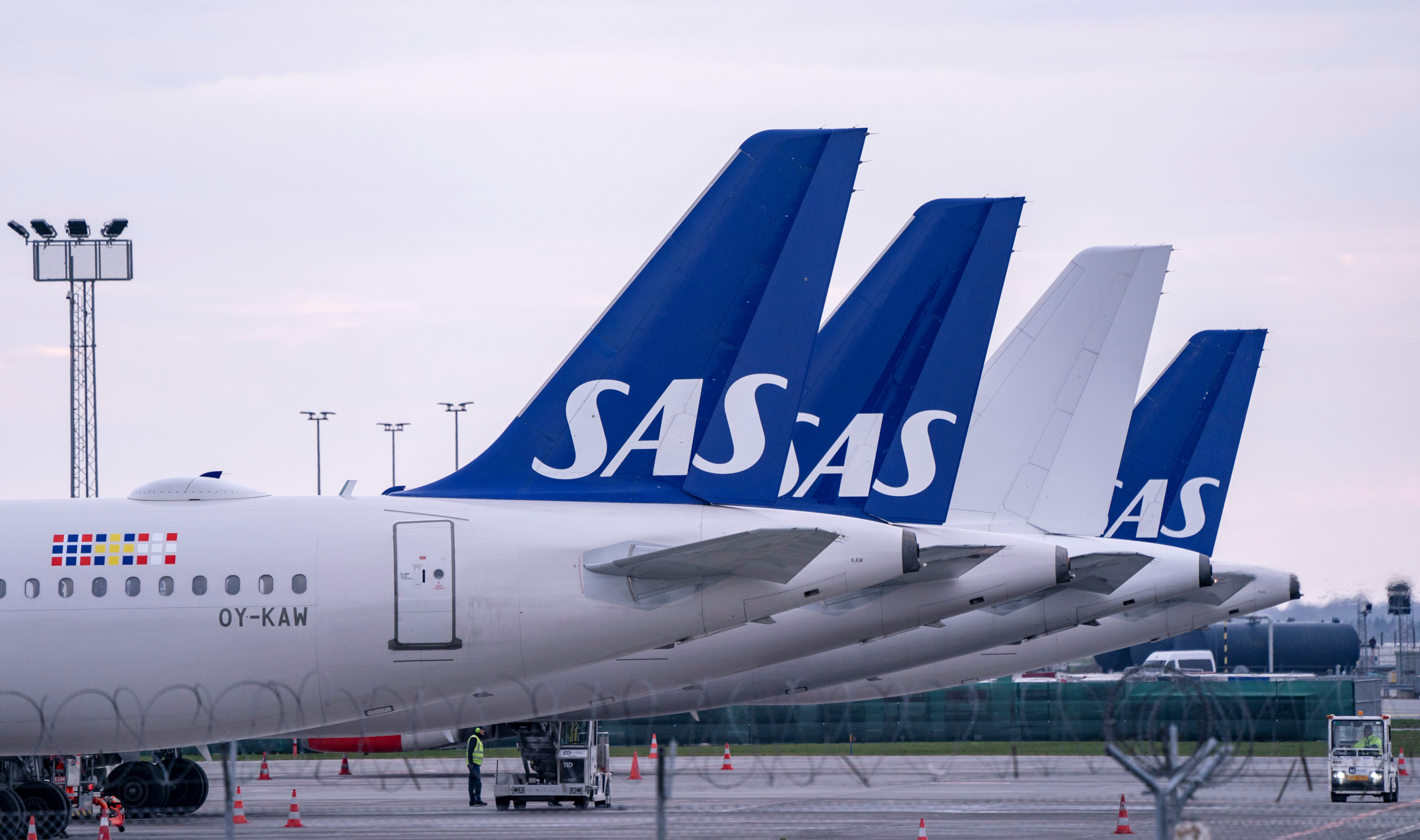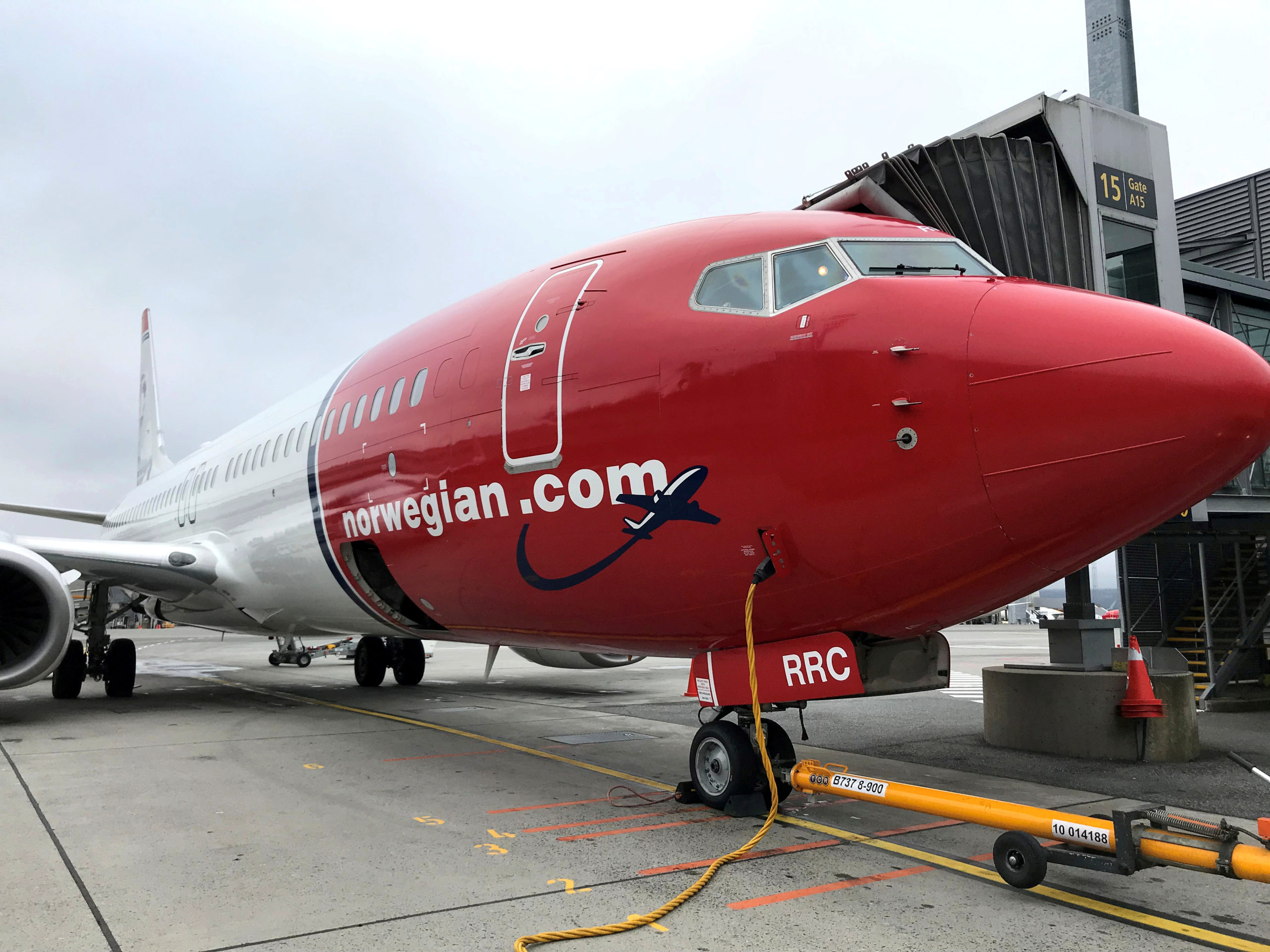Facing coronavirus woes, SAS and Norwegian Air get financial lifelines
The two airlines, which together serve much of the European Arctic, both secured deals to keep them afloat as COVID-19 halts most air travel.

STOCKHOLM/OSLO — Scandinavian airline SAS said on Tuesday it had signed a government-backed bailout deal, a day after regional rival Norwegian Air narrowly avoided bankruptcy through a last-minute debt-to-equity agreement with creditors and shareholders.
The airline signed a 3.3 billion Swedish crown ($336 million) three-year revolving credit facility agreement, 90 percent guaranteed by Sweden and Denmark’s governments, as it looked to beat a path through the coronavirus crisis.
The COVID-19 pandemic and measures to curb its spread have thrown the airline industry into crisis, grounding flights and leaving carriers scrambling to cut costs and staff to cushion the blow.
Many airlines have received or are seeking public backing to see them through the crisis and SAS, part-owned by Sweden and Denmark, had lined up the guarantees from its state owners earlier this year but only now finalized the credit agreement.
[Iceland might consider taking stake in Icelandair if the state injects funds, says prime minister]
“The guaranteed debt package, which has been approved by the European Commission, was implemented in the context of the COVID-19 crisis and is intended to support the airline’s liquidity and prepare for the recovery of its activities,” SAS said in a statement.
SAS is reducing its workforce by about half and said it would continue its work to cut costs and seek additional support from the Scandinavian countries.
“As part of this we will further our dialogue with the Norwegian government to be able to access up to NOK 1.7 billion of additional state guaranteed funding,” SAS CFO Torbjorn Wist said.
The credit facility was coordinated by SEB. Danske Bank, Nordea, SEB and Swedbank were the mandated lead arrangers.
Norwegian sees debt-to-equity plan approved
A day earlier, on Monday, Norwegian Air shareholders backed its financial survival plan, with more than 95 percent of votes cast supporting the conversion of nearly $1 billion of debt into equity and raising more cash from its owners.
The approval follows weeks of negotiations with creditors, while thousands of Norwegian’s pilots and cabin crew were being laid off. The rescue deal prepares the ground for a relaunch of the company in a scaled-down version when the coronavirus crisis subsides.
Bondholders, who on Thursday narrowly rejected the plan, were back on board on Sunday following additional negotiations. Norwegian now expects a final May 18 vote of creditors to be “almost 100 percent a formality,” the company said.
The budget carrier’s shares rallied 46 percent on news of the plan’s approval, even though owners face significant dilution of their stakes as lenders gain control of the firm.

The rescue deal is a vital part of the airline’s plan to tap government credit guarantees as it seeks to overcome the crisis, which has compounded its already deep financial problems.
Airlines around the world have been hit hard by the pandemic’s impact on travel, with many forced to turn to governments for state aid to avoid bankruptcy.
Norwegian Air, which had amassed debts of around $8 billion at the end of 2019, said ahead of the meeting that it had won “strong support” from aircraft lessors for its plan.
With 95 percent of its fleet grounded due to the pandemic, Norwegian Air has said it could run out of cash by mid-May unless shareholders supported the plan.
Norwegian Air said lessors are now willing to convert at least $730 million of debt into equity, up from $550 million earlier, and talks are ongoing for possible further conversion.
“With the significant contributions from lessors and bondholders, the company expects to convert more than 10 billion crowns ($958 million) in debt to equity,” the company said.
Talks in the past few weeks involved 24 lessors and four separate groups of bondholders as well as banks and shareholders. At the same time, the company was having to ground its fleet as well as try to serve customers stranded by the crisis.
The company will now proceed with the conversion of bonds and lease debt into shares, and a public offering of up to 400 million ($38.4 million) from the sale of new stock.
The debt conversion and share sale will allow Norwegian Air to tap government guarantees of up to 2.7 billion crowns, which hinge on a reduction in leverage, on top of 300 million crowns it has already received.
The plan will hand majority ownership to the airline’s creditors and could leave current shareholders with just 5.2 percent.
The loan could keep Norwegian Air going until the end of 2020, although further cash may be needed as it looks towards a gradual ramp-up next year and normalisation in 2022, albeit with a reduced fleet.
Norwegian Air is only paying invoices vital to maintaining minimum operations, such as salaries for staff still employed and critical IT infrastructure. It has put payments for ground handling, debt and leases on hold.
Reporting by Johannes Hellstrom, Niklas Pollard, Terje Solsvik and Gwladys Fouche; additional reporting by Victoria Klesty.